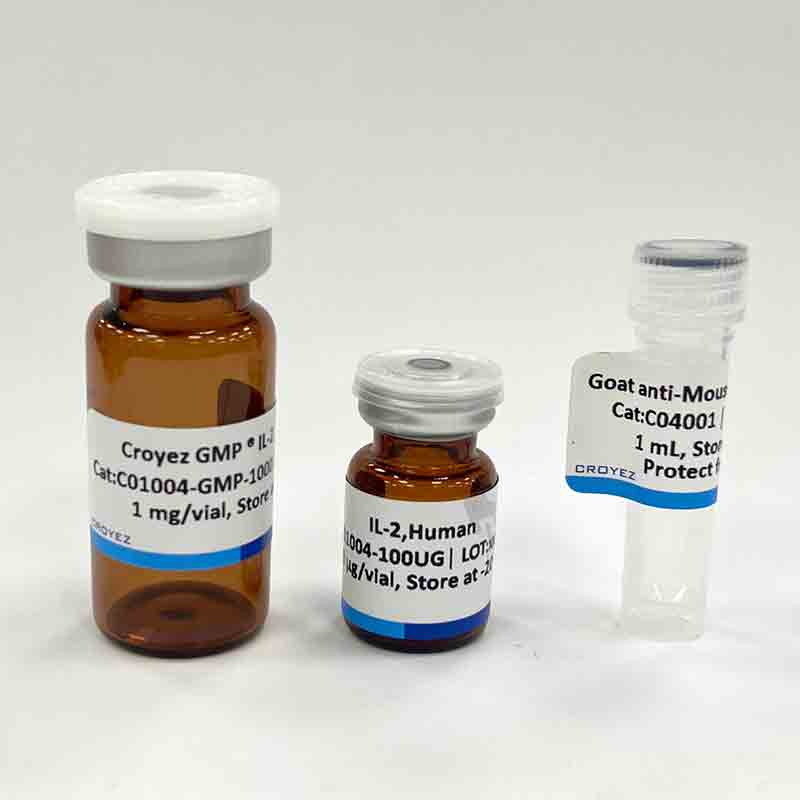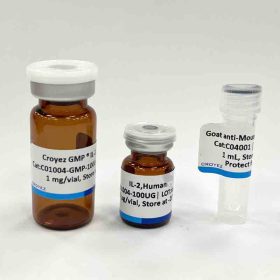Interleukin 33 (IL-33) is a member of the IL-1 family that potently drives production of T helper-2 (Th2)-associated cytokines (e.g., IL-4). IL33 is a ligand for ST2 (IL1RL1), an IL-1 family receptor that is highly expressed on Th2 cells, mast cells and group 2 innate lymphocytes. It is expressed by a wide variety of cell types, including fibroblasts, mast cells, dendritic cells, macrophages, osteoblasts, endothelial cells, and epithelial cells.
Sequence:
MSITGISPITEYLASLSTYNDQSITFALEDESYEIYVEDLKKDEKKDKVLLSYYESQHPSNESGDGVDGKMLMVTLSPTKDFWLHANNKEHSVE
LHKCEKPLPDQAFFVLHNMHSNCVSFECKTDPGVFIGVKDNHLALIKVDSSENLCTENILFKLSET with polyhistidine tag at the
C-terminus
Source:
Escherichia coli
Endotoxin Test:
<0.1 EU per 1 μg of the protein by the LAL method.
Activity:
Measure by its ability to binding with recombinant ST2L (IL-33 receptor). The ED50 for this effect is <54 ng/mL.
Measure by its ability to induce proliferation in D10.G4.1 cells. The ED50 for this effect is <0.1 ng/mL. The specific activity of recombinant human IL-33 is approximately >4 x107 IU/mg.
Purity:
>98% as determined by SDS-PAGE. Ni-NTA chromatography
Formulation:
The protein was lyophilized from a solution containing 1X PBS, pH 7.4.
Reconstitution:
It is recommended to reconstitute the lyophilized protein in sterile H2O to a concentration not less than 100 μg/mL and incubate the stock solution for at least 20 min to ensure sufficient re-dissolved.
Storage:
Lyophilized protein should be stored at -20°C. Upon reconstitution, protein aliquots should be stored at -20°C or -80°C.
Note:
Please use within one month after protein reconstitution.





